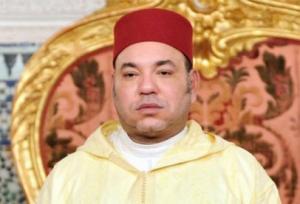 Morocco’s King Mohammed VI criticized the Islamist-led government’s efforts in developing the educational sector during his speech to mark the 60th anniversary of the Revolution of the King and the People.
Morocco’s King Mohammed VI criticized the Islamist-led government’s efforts in developing the educational sector during his speech to mark the 60th anniversary of the Revolution of the King and the People.
King Mohammed VI highlighted the difficulties facing the educational sector which are hampering its role in helping Morocco achieve its socio-economic development.
“The education sector is facing many difficulties and problems. They are mostly due to the adoption of some syllabi and curricula that do not tally with the requirements of the job market,” said the King.
“Another reason has to do with the disruptions caused by changing the language of instruction from Arabic, at the primary and secondary levels, to some foreign languages, for the teaching of scientific and technical subjects in higher education. Accordingly, students must be provided with the necessary linguistic skills so that they may fully benefit from training courses,” he noted.
The Moroccan monarch praised the positive results achieved in the fields of vocational, handicraft and technical training.
“Specialized two to four-year training courses are available in these areas, both to baccalaureate and non-baccalaureate holders, and those who graduate from these courses have more opportunities to find a job directly and quickly and start a professional career,” he said.
However, he made an important remark on certain educational institutions which teach some obsolete subjects which exacerbate unemployment among university graduates.
“Educational institutions which provide such courses should not be factories that produce unemployable graduates, particularly in certain obsolete subjects,” he said, adding that Moroccans should be encouraged to master foreign languages, expand their knowledge base, refine their skills and gain the competence needed to be able to work in Morocco’s new professions and areas of employment where there is a significant shortage of skilled workers.
King Mohammed VI also called on the government to pay further attention to vocational training and to the rehabilitation of technical and manual work, which are becoming increasingly important in the Moroccan job market and “provide a major source of income as well as a means for the achievement of a dignified life.”
“Considering the current state of the education and training sector, we need to pause, assess achievements and pinpoint shortcomings and inadequacies.
“I wish to stress, in this respect, the importance of the National Charter for Education and Training, which was adopted through a broad-based national participatory approach.
“Successive governments have all worked on the implementation of this charter, particularly the last one, which deployed all the necessary means and resources to implement the Emergency Programme. However, it only engaged in this process during the last three years of its mandate,” he said.
“Unfortunately, the gains made since this programme’s implementation was started have not been consolidated. On the contrary, some of its basic components, namely aspects related to syllabus change, primary school curriculum and high schools of excellence, have been dropped, without consulting or coordinating with the parties concerned,” he stressed.
The Moroccan monarch criticized the government for not following on its predecessor’s educational policies.
“The current government should have capitalised on the positive experience gained in the field of education and training, especially as this is a crucial project that will span several decades,” he said
“It hardly makes sense for each government to come with a new plan every five years, and disregard previous programmes, particularly as no government will ever have the time, during a single mandate, to fully implement its project.
“The education sector should, therefore, not be included in the sphere of purely political matters, nor should its management be subjected to outbidding tactics or party politics. Rather, it should be part of a cultural, economic and social approach aimed at training and preparing human resources who can be incorporated into a dynamic development process, through an efficient education system,” he added.
He also expressed his sadness at the current state of education which forces many families to send their children to study abroad or in private institutions despite their limited financial resources
“I am indeed sad to note that the state of education is worse now than it was twenty years ago,” he said.
“As a result, and in spite of their limited resources, a large number of families are compelled to pay huge fees for their children to study in foreign schools or private education institutions in order to avoid the pitfalls of the state school and enrol their children in an efficient system,” he added.
Morocco celebrates the 60th anniversary of the Revolution of the King and the People together with the King’s birthday.
.






